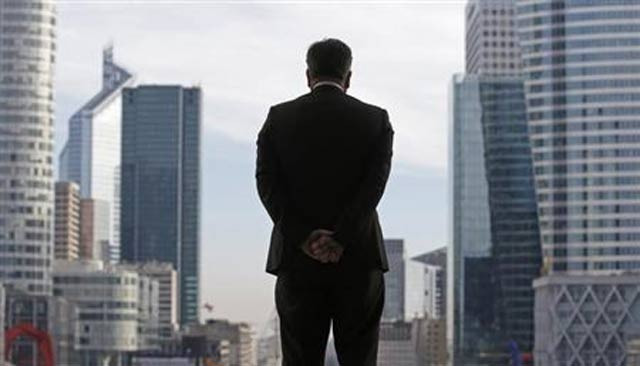Businessmen expect amnesty to bring back $20b from abroad
Ask PM to offer amnesty scheme to resident and non-resident Pakistanis

Ask PM to offer amnesty scheme to resident and non-resident Pakistanis. PHOTO: REUTERS
According to the PBC - the representative body of leading business groups, the move could attract $20 billion out of the $150 billion said to be held by resident and non-resident Pakistanis abroad which, it says, will support the fast declining foreign currency reserves.
The PBC floated the proposal in a meeting with the prime minister last week, said sources.
The delegation also suggested that the government should offer its three liquefied natural gas (LNG)-fired power plants, one owned by the Punjab government, to non-resident Pakistanis for investment.
FPCCI demands repatriation of wealth stashed abroad
However, the premier expressed his reservations because of political implications of the tax amnesty. The other issue was the tax rate that should be charged from those who opt for the amnesty to legalise their hidden assets.
The proposal came at a time when Pakistan’s gross foreign currency reserves slipped to $14.3 billion as of August 11, which can cover only 3.2 months of imports.
“The government has little time left to enhance its reserves and encouraging Pakistanis to bring back their foreign wealth could be one of the few quick ways to cushion the reserves,” said a PBC member on condition of anonymity.
He said in the longer run there was a need to enhance exports and encourage import-substitution industries.
The PBC delegation did not make a formal proposal, but it talked about offering a scheme to attract foreign assets held by Pakistanis, said Dr Miftah Ismail, Special Assistant to the PM on Economic Affairs.
Responding to a question, Ismail said there was no discussion on the exchange rate policy.
PBC members contribute about one-tenth to the total national output and 5% of taxes including indirect taxes.
The tax amnesty scheme is not a new proposal as business executives had also given the same proposal to former PM Nawaz Sharif. After that, Nawaz constituted a committee of all stakeholders to give shape to the scheme.
The stakeholders - including government officials and businesses - had almost finalised the Foreign Asset Tax Bill 2017 to offer a general amnesty.
According to an assessment of AF Ferguson - the leading chartered accountancy firm, Pakistanis have parked about $150 billion worth of assets abroad.
Recovery of Pakistani cash stashed in Swiss banks unlikely
Of this, $40 billion is parked in foreign real estate either through offshore entities or directly, another $40 billion is in bank accounts, $20 billion is in the shape of shares in Pakistani companies and $50 billion is in the shape of other assets, including manufacturing concerns.
However, its assessment is that at best “$3 billion to $4.5 billion” will be repatriated to Pakistan. This assessment is far less than the $20-billion figure quoted by the PBC delegation.
In the past, amnesty schemes have failed to yield required results, partially because of weak enforcement by the Federal Board of Revenue.
International and domestic pressures are leading difficulties for keeping undeclared assets offshore and Pakistan’s declaration of an amnesty scheme will provide protection internationally, according to AF Ferguson.
The PBC delegation also proposed that Pakistanis should be encouraged to channel their wealth that they have held abroad and invest in the country’s infrastructure projects.
Pakistan’s external sector has come under stress as the current account deficit in July widened to $2.1 billion. It was only $662 million in July last year.
Exports are the lowest in six years as the export package could not have an impact. Pakistan’s share in global exports has been on the declining path and stood at only 0.13% last year.
On the fiscal front, the budget deficit was on the rise and the country’s total debt is also growing due to low tax-to-GDP ratio. There is high reliance on short-term debt and foreign exchange borrowings and a quarter of export receipts are used for debt servicing.
Published in The Express Tribune, August 22nd, 2017.
Like Business on Facebook, follow @TribuneBiz on Twitter to stay informed and join in the conversation.



1733130350-0/Untitled-design-(76)1733130350-0-208x130.webp)















COMMENTS
Comments are moderated and generally will be posted if they are on-topic and not abusive.
For more information, please see our Comments FAQ